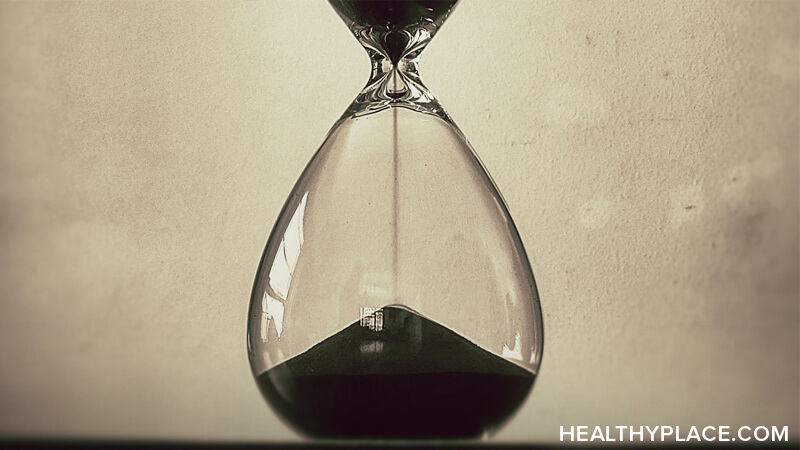There Is No Need to Rush Eating Disorder Recovery

As someone who has been on the healing journey for almost 15 years (and counting), I can assure you that there is no need to rush eating disorder recovery. Of course, this does not mean you should overlook urgent health concerns or delay the search for crucial therapeutic interventions. But once you are in a safe and stable place, the work to heal from those false narratives or unresolved traumas beneath your eating disorder behaviors can take years. This process does not come with a linear time frame, so moving too hastily through it could rob you of valuable growth opportunities. For this reason, I firmly believe there is no need to rush eating disorder recovery.
It Was Not Helpful to Rush My Eating Disorder Recovery
During my three months of residential treatment back in 2010, I recall a therapist warning me of a scenario called "the flight into health." As she went on to explain, this is a common reaction that many eating disorder sufferers have in the early stages of their treatment. Basically, it's a quick 180-degree reversal away from eating disorder behaviors toward a healthier course of action. For instance, they might transition from severe caloric restriction to consuming three square meals with no outward hesitation. But while this sounds like a positive turnabout, the flight into health can be unsustainable long-term—that was my own experience, at least.
I wanted to become a model patient, to follow every rule of the program, to embrace recovery with enthusiasm and excellence so I could ultimately punch a ticket out of there. Basically, I just wanted to rush eating disorder recovery. However, the repressed inner turbulence that caused my eating disorder in the first place would not remain dormant forever. It resurfaced with a vengeance, and all my efforts to accelerate this healing process crumbled. Eventually, I learned that behavior modification is not enough. If I wanted to resolve my illness at its source, then I would have to take a more holistic approach.
Sure, I had to focus on restoring physical health—but I also had to unravel a lifetime of body image insecurities, mental anxieties, internalized societal messages, and emotional traumas. A few weeks into this journey, I realized it would be a marathon, not a sprint. Moreover, racing to the finish line (if such a milestone exists) would only stack unreasonable pressure on my shoulders. I began to see the value of small but consistent and incremental progress. Sometimes, I took three steps forward, then felt myself careening twice as many steps back. But I also formed the resilience to continue on this path, no matter how arduous. Over time, I learned there is no need to rush eating disorder recovery—a lesson that still compels me to grow, heal, and persevere today.
A Word of Reassurance: You Don't Need to Rush Eating Disorder Recovery
Editor's Note: You must be 18 to watch this video per Youtube's policy on eating disorder discussions.
As someone who is also walking this road one step at a time, let me encourage you: There is no need to rush eating disorder recovery. Each small ounce of progress and momentum will steer you that much closer to the healing you deserve.
Do you ever feel tempted to rush your own eating disorder recovery process? Is it hard for you to move forward at a realistic, sustainable pace? Do you resonate with the invitation to take it slower or be more gentle with yourself? Tell me more in the comments.
APA Reference
Schurrer, M.
(2024, May 30). There Is No Need to Rush Eating Disorder Recovery , HealthyPlace. Retrieved
on 2025, December 28 from https://www.healthyplace.com/blogs/survivinged/2024/5/there-is-no-need-to-rush-eating-disorder-recovery